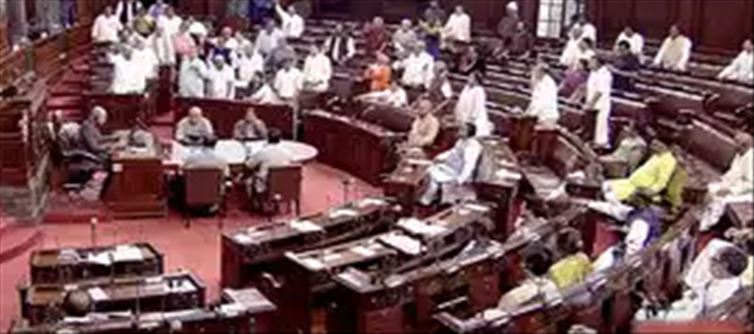
The Union government is preparing to introduce the Constitution (One Hundred and Twenty-Ninth Amendment) Bill, 2024, in parliament on Tuesday, igniting heated debates across political and public spectrums. Touted as a bold and transformative move, the bill proposes simultaneous elections for the lok sabha and state assemblies, a practice last seen between 1951 and 1967. However, the initiative has drawn sharp criticism and skepticism, with opposition parties alleging political motives behind its timing and execution.
Union Law minister Arjun ram Meghwal is set to table the bill, following the Union Cabinet's nod. The proposal will likely be referred to a joint parliamentary committee for detailed deliberations. The committee, expected to be chaired by a bjp member due to its parliamentary majority, will include MPs in proportion to the strength of various parties. Critics, however, are questioning the impartiality of such a committee and its ability to conduct a balanced review of this contentious issue.
Allegations of Political Opportunism
Opposition parties, including the congress, have slammed the BJP-led government, alleging that the timing of the bill is politically motivated. With crucial state elections and the 2024 lok sabha polls on the horizon, they argue that the "One Nation, One Election" proposal serves as a distraction from pressing economic and governance issues.
"The bjp is attempting to consolidate its power by reshaping the democratic framework without adequate public discourse," said a senior congress leader. Other opposition voices have also pointed out the logistical and constitutional challenges of conducting simultaneous elections in a diverse country like India.
A Blow to Federalism?
Critics argue that the bill undermines India's federal structure by eroding the autonomy of state governments. The staggered election cycle is seen as a safeguard for decentralized governance, enabling states to address their unique challenges independently.
"Simultaneous elections might lead to the dominance of national narratives, marginalizing state-specific concerns," warned a political analyst. The move could also result in the dissolution of state assemblies to align their terms with the lok sabha, raising questions about the democratic mandate of elected representatives.
Supporters Tout Efficiency and Cost Savings
The government, however, defends the bill as a necessary reform to curb election fatigue and reduce financial burdens. Proponents argue that frequent elections disrupt governance and strain resources due to the imposition of the Model Code of Conduct.
"One Nation, One election will bring stability and allow governments to focus on development without being in constant election mode," said a bjp spokesperson.
Legal and Logistical Hurdles
Constitutional experts have pointed out the legal complexities involved in implementing simultaneous elections. The amendment will require changes to several articles of the Constitution, including Articles 83, 85, 172, 174, and 356. Additionally, the election commission of india would need extensive resources and manpower to manage the logistics of conducting polls on such a massive scale.
The feasibility of aligning election cycles for all states is another contentious issue. What happens if a state government falls mid-term? Would the entire country return to the polls, or would the state face prolonged President's Rule until the next synchronized election?
Public Sentiment and the Road Ahead
Public opinion remains divided, with some citizens supporting the idea for its potential to streamline the democratic process, while others fear it may centralize power in an already polarized political landscape.
As the bill heads to parliament, it is likely to face fierce debates, not just on its merits but also on the broader implications for indian democracy. The bjp appears determined to push its vision forward, but whether it can navigate the minefield of political and constitutional challenges remains to be seen.
The introduction of this bill has undoubtedly set the stage for one of the most significant political and constitutional battles in recent history.




 click and follow Indiaherald WhatsApp channel
click and follow Indiaherald WhatsApp channel